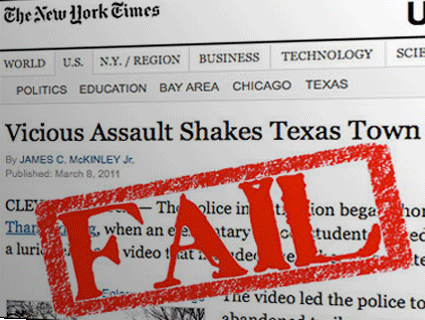House Republicans attracted a lot of outrage earlier this year when they attempted to redefine rape in a way that would limit exceptions to the ban on federal funding for abortions. The GOP originally proposed limiting the situations in which the government could help pay for abortions to those in which the pregnancy was the result of “forcible rape” or incest “if [the victim is] a minor.”
Eventually, the party dropped that effort: its amended legislation returns to straightforward exceptions that allow the government to pay for abortions “if the pregnancy is the result of an act of rape or incest.” But it’s worth noting, as Ms. reminds us, that the Federal Bureau of Investigation is still operating under a “forcible rape” framework.
For 82 years, the bureau has been using this definition of rape for its Uniform Crime Report:
The carnal knowledge of a female forcibly and against her will. Included are rapes by force and attempts or assaults to rape. Statutory offenses (no force used–victim under age of consent) are excluded.
The year 1929, as Ms. points out, was quite a while ago—before the Great Depression, before Mickey Mouse, and before the Empire State Building, to name a few. It was also before roofies had been invented and before date or partner rape were even concepts.
This dated language has led to a Feminist Majority Foundation campaign asking FBI Director Robert Mueller and Attorney General Eric Holder to modernize the FBI’s definition. The activists also note that the current definition “excludes victims of forced anal or oral sex, rape with an object, statutory rape, and male rape,” and that it “is often used by law enforcement to exclude rapes of women whose ability to give consent has been diminished by drugs or alcohol.”














